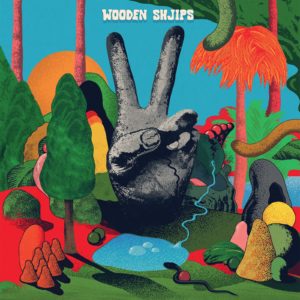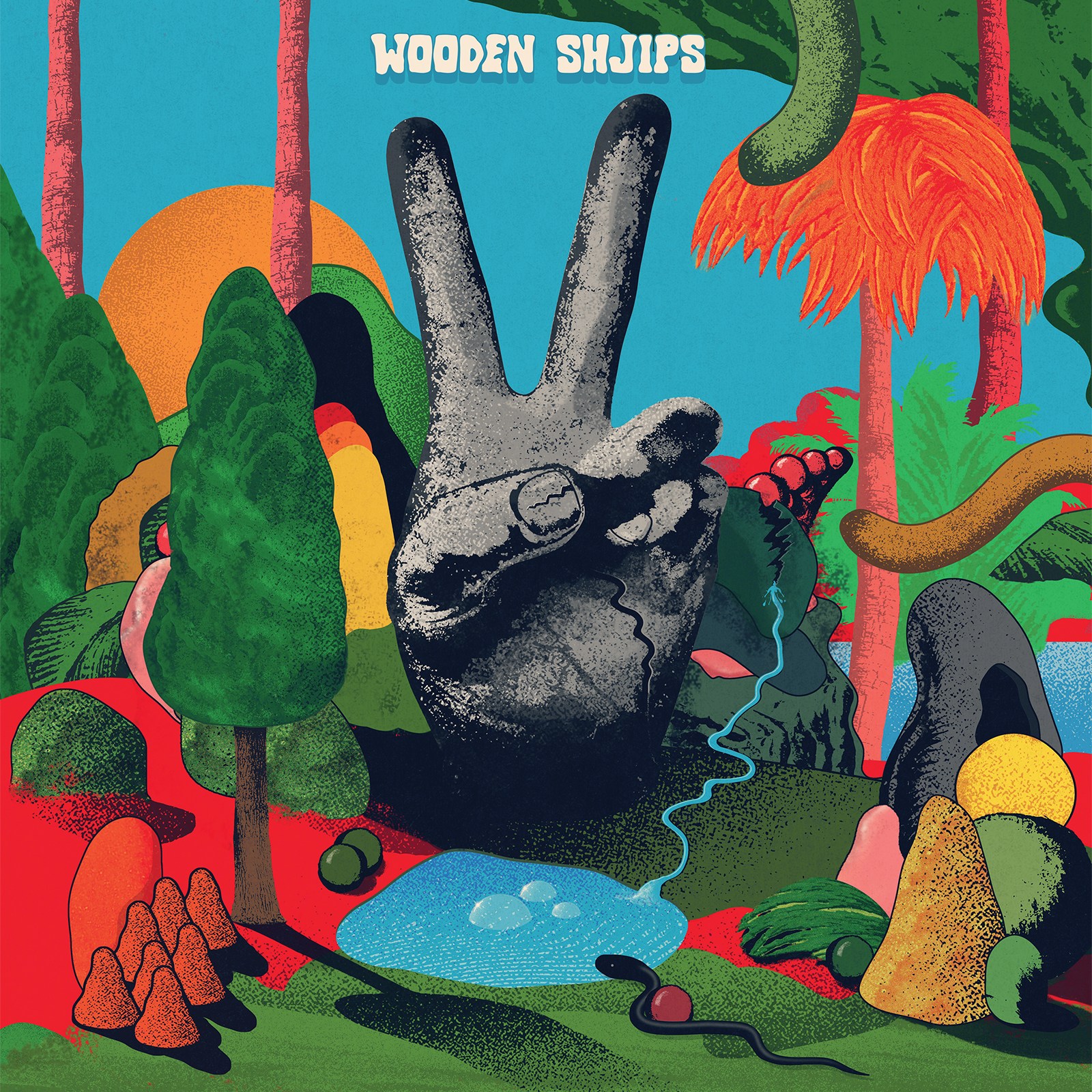Wooden Shjips 
V.
THRILL JOCKEY
6/10
At the time, dropping the needle on a Wooden Shjips song like 2006’s “Shrinking Moon for You” was to be reminded that the best and most effective rock and roll is usually the most simple—and if it’s an especially lysergic form of rock, it’s best if the feedback and repetition are dialed all the way up. That early nine-minute blast of guitar, Bo-Diddley-meets-Silver-Apples beat, roaring thunderclouds of feedback, and faded lyrics made you wonder if Wooden Shjips really had a vocalist or if that was just another echoing texture floating out of the headphones.
Twelve years and five albums later (not to mention those albums from founder/songwriter Ripley Johnson’s other band, Moon Duo) and the Shjips are still deep in that psych headspace—but on V. they’ve expanded, creating trance-like music with classic-rock roots and more wide-open vistas. Previous albums like West and Back to Land willfully embraced a warmer production sound, shedding the skeletal darkness found on some of their early records. But really, as V. defiantly proves, Wooden Shjips aren’t looking for reinvention—they are still chasing grace through repetition; they simply have a broader palette to work with this time. “Eclipse” launches right away into that Shjips beat—minimal, driving, endless—soon accented with guitar, feedback, and vocals that make Spacemen 3 sound like The Decemberists; there are just hints of syllables and words hidden behind layers of sound (including a pretty fantastic saxophone odyssey).
There is something amazing—but not quite wholly satisfying—about this world that the band has created: a rock and roll fantasy camp where you can take the best parts of the ’60s psychedelic underworld and fuse them with the punk minimalism of Suicide and the reverb-heavy indie dream pop of the late ’80s and early ’90s. Case in point: “Staring at the Sun” is like the Jesus and Mary Chain covering Buffalo Springfield’s “For What It’s Worth.” Album closer “Ride On” is one of those rare Wooden Shjips songs (à la Back to Land’s “Everybody Knows”) where you can detect some kind of melancholic elegy underneath the oft-inflexible, spaced-to-the-gills rock road they travel down.







